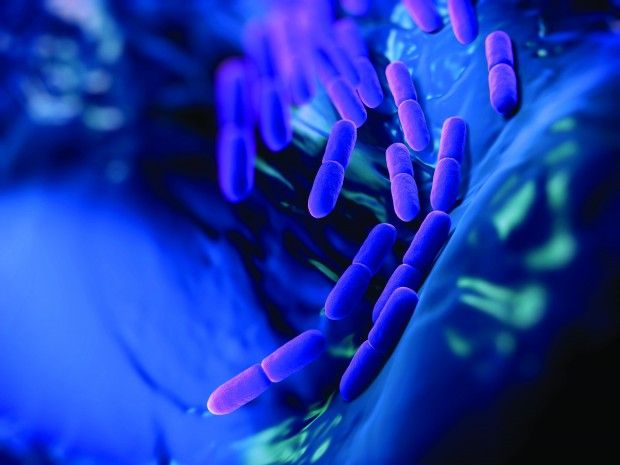Bifodan Probiotic May Reduce Pain Sensitivity, Animal Study Suggests
A new study in obese and normal-weight mice suggests Bifodan’s proprietary probiotic strain Lactobacillus rhamnosus PB01 may lessen pain sensitivity.
Photo © iStockphoto.com/royaltystockphoto

A new study on Lactobacillus rhamnosus PB01, a proprietary probiotic strain from Bifodan A/S (Copenhagen, Denmark), suggests the probiotic may alleviate pain sensitivity in normal-weight and obese mice. Certain obesity treatments have been shown to reduce pain in past studies, and researchers noted that intestinal microbiota may influence obesity and pain sensitivity. But until now, the effect of probiotics on perceptions of musculoskeletal pain “has not been studied systematically,” researchers said.
The study included 24 mice aged six weeks that were either fed a standard diet or a high-fat diet to induce obesity. Then, within both groups, half the mice received a single daily oral dose of L. rhamnosus PB01 (1 x 109 CFU), while the other half did not have probiotic supplementation. The study lasted a total of eight weeks, with the four groups of mice receiving only high-fat or normal diets for the first four weeks, followed by four weeks of probiotic supplementation among half the mice.
Researchers found that both the normal-weight and obese mice receiving probiotics maintained an insignificant weight gain over the course of the study, while the groups not receiving probiotics did have significant weight gains. Pain sensitivity was assessed with an electronic Von Frey test that induced mechanical pain stimulation to the mice’s hind paws every two weeks. Compared to the control groups, both groups of mice taking probiotics showed significantly lower sensitivity to the mechanical stimulation.
While further study is required to explain the mechanism of action, researchers noted, they suggests the probiotics appeared to induce a protective effect on nociception circuits, “which proposes a direct result of the weight reduction or an indirect result of the anti-inflammatory properties of the probiotics.”
In the study announcement, Bifodan said the study results provide “a strong indication that this specific strain may have potential to reduce the experience of pain.”
“Regardless of the underlying mechanism, Lactobacillus rhamnosus PB01 can be suggested as a candidate for a novel therapeutic strategy in pain management of obese and normal weight individuals,” says Feresteh Dardmeh, study author and scientific consultant to Bifodan, in the announcement.
Read more:
2016 Probiotic Research Update
Probiotic Firms Venture Further Into the Allergy Market
Cranberry Plus Probiotics Defends against E. Coli in Preclinical Study
Michael Crane
Associate Editor
Nutritional Outlook Magazine
michael.crane@ubm.com
References:
“Dardmeh F et al., “Potential nociceptive regulatory effect of probiotic Lactobacillus rhamnosus PB01 (DSM 14870) on mechanical sensitivity in diet-induced obesity model,” Pain Research and Management. Published online August 25, 2016.








